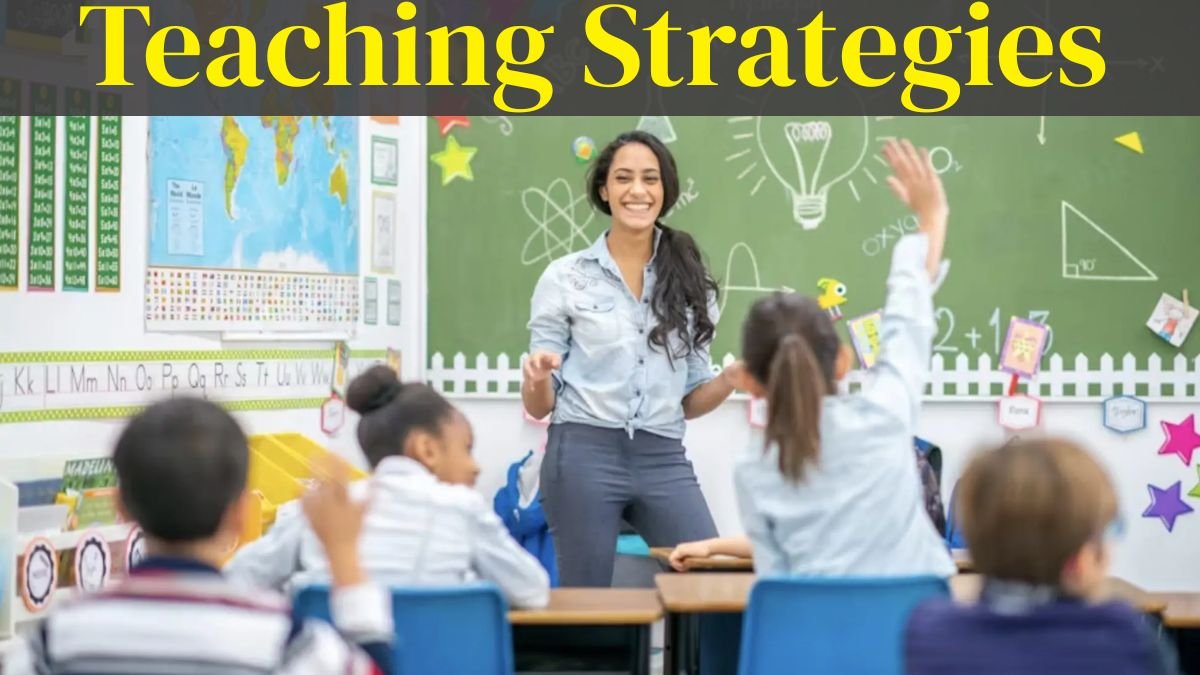Education is the backbone of any society. As we approach 2025, the classroom environment is changing rapidly. Digital technology, artificial intelligence (AI), online platforms and new teaching methods have changed the very definition of education. In today’s time, just teaching books is not enough; it has become necessary to prepare students to think, question, analyze and use knowledge in real life. In such a situation, teaching excellence does not mean only good results, but also the overall development of students, confidence and preparation for future challenges.
In this article, we will know what innovative teaching strategies should be adopted by teachers in the class of 2025 so that they can give their students a better learning experience and achieve excellence.
What is the meaning of teaching excellence?
Teaching excellence is not just teaching the subject well. These include:
- Making students curious
- Developing critical thinking
- Creating an inclusive environment
- Effective use of technology
- Helping problem solving
- Taking care of emotional and mental health
- Promoting leadership and teamwork
The excellent teachers in the class of 2025 will be those who embrace change, use new technologies and understand the needs of every student.
Innovations required for teaching excellence in 2025
Project-Based Learning
Students are being given projects to solve real-life problems, not just to pass exams. Examples:
- Projects on environmental protection
- Activities to find solutions to local problems
- Explaining science and mathematics through experiments
This develops leadership, team spirit and creative thinking in students.
Personalized Learning Plans
Every student has a different learning ability and pace. Now AI based platforms prepare personalized plans based on the performance of students. Teachers:
- Provide content according to the student’s strengths and weaknesses
- Teach difficult topics by dividing them into smaller parts
- Give additional practice according to the interest of the students
This strategy increases self-reliance and confidence in students.
Incorporation of technology (Blended Learning)
The classroom is being made more interactive by using both online and offline methods. Such as:
- Video lectures
- Quiz apps
- Virtual classrooms
- Digital notes and game-based learning platforms
Technology allows students to learn from anywhere, anytime.
Emotional Wellbeing Support
Good teachers do not just teach the subject, but also take care of the mental state of the students. In the classroom:
- Meditation and mindfulness exercises are included
- Counselling services are provided
- An environment of empathetic dialogue is created
This reduces stress in students and increases their self-esteem.
Inclusive Education
Every student has a different way of learning. Some students may have special needs, either physically or mentally. In such a case:
- Braille books and audio materials
- Notes in simple language
- Use of assistive devices
- Collaborative classroom environment
The aim of inclusive education is that no student is left behind.
Collaborative Learning
Group activities help students think, communicate and solve problems together. Teachers:
- Give team-based assignments
- Encourage discussions and debates
- Develop leadership skills through collaboration
This strategy develops social skills in students.
Feedback-Oriented Learning
Constant feedback helps students identify their weaknesses. Teachers:
- Conduct regular assessments
- Ask students questions
- Share progress reports
- Give guidance towards improvement
This makes the learning process more effective.
Essential skills for teachers
To excel in the class of 2025, teachers will need to develop certain skills:
- Technology understanding
- Communication skills
- Empathy and patience
- Problem solving ability
- Time management
- Flexibility and adaptability
- Self-motivation and continuous learning
With the help of these skills, teachers will not only be able to complete the syllabus, but will also be able to leave a lasting impact in the lives of students.
Ways to increase student engagement
- Interactive games – make learning fun.
- Real-life examples – connect theory to practice.
- Discussion forums – give students an opportunity to share ideas.
- Role plays and activities – increase leadership and confidence.
- Feedback Survey – Improvement in curriculum by taking students’ opinion.
Collaboration of teachers and parents
Teaching excellence is not limited to the classroom. Collaboration between home and school leads to the overall development of children. Such as:
- Informing parents about children’s progress
- Organizing regular meetings
- Discussion on mental health and discipline
- Sharing responsibilities related to studies
In this way, the joint effort of teachers and parents gives a strong foundation to the children.
Challenges in the direction of teaching excellence
- Digital divide – Technology does not reach all students.
- Lack of time – It is difficult to give individual attention.
- Lack of mental health – Stress and anxiety hinder learning.
- Exam-focused education – Neglect of creative thinking.
- Problem of language and resources – more in rural areas.
The solution to these challenges is possible only through policy, training and awareness.
Conclusion
The classroom of 2025 is not just a room of books, but a laboratory where students discover themselves, solve problems and prepare for future challenges. Innovative teaching strategies such as project-based learning, personalized plans, integration of technology, mental health care, inclusiveness and teamwork enrich the lives of students. The role of teachers is no longer just to impart knowledge but to inspire, guide and make students self-reliant.
Teachers who embrace change, use new technologies and understand the special needs of every student will set new examples of teaching excellence in 2025. The future of education is bright – all we need is innovation, patience, sensitivity and dedication.
If we adopt the right strategies today, the coming generation will not only become better students but also sensitive, self-reliant and responsible citizens.
